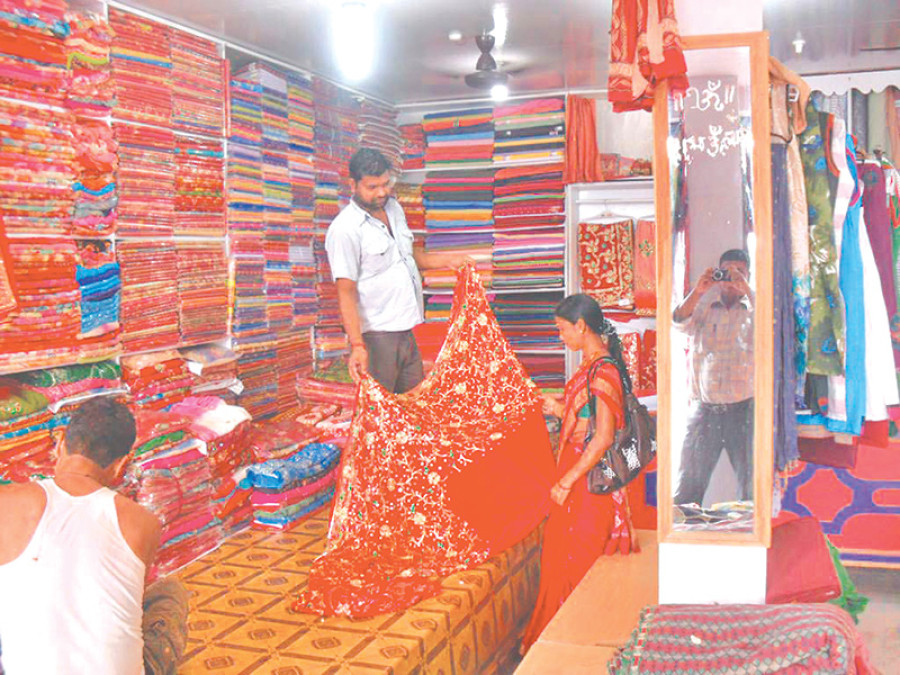Money
Shoppers throng Indian markets ahead of Dashain
Nepalis living along the border with India have been thronging nearby Indian towns to do their festival shopping with the country’s biggest religious celebration Dashain approaching. The bordering markets in India receive crowds of Nepali shoppers throughout the year, but during Dashain, the crowds swell into hordes.
Mohan Budhair
Nepalis living along the border with India have been thronging nearby Indian towns to do their festival shopping with the country’s biggest religious celebration Dashain approaching. The bordering markets in India receive crowds of Nepali shoppers throughout the year, but during Dashain, the crowds swell into hordes.
Shoppers prefer to buy goods ranging from daily essentials to textiles and spices from the Indian market as prices are comparatively cheaper across the border.
The Indian border towns attract customers from even long distances. In the far west region of Kailali, shoppers used to buy goods from the Gauri Phanta market, a town situated along the Indo-Nepal border.
However, following the closure of the market due to the creation of Dudhwa National Park, Nepali customers have been frequenting the Palia market.
According to shopkeepers, the most sought after items are clothes, sugar and edible oil. Although there are no official statistics about shoppers travelling to India, estimates put the number of people crossing the border at around 300 individuals daily. They spend an estimated Rs1 million daily, according to Nepali entrepreneurs.
The major markets in Dhangadhi normally dry up during the festive season, they said. “The closure of the Gauri Phanta market, which is situated a kilometre from the border, had cheered Nepali traders in Dhangadhi,” said Rishi Poudel, a local trader in Dhangadhi. However, the flow of Nepalis to Indian markets did not stop. “They don’t hesitate to travel even 30 km to the Palia market because the goods are cheaper,” he said.
Another merchant Hem Chandra Ojha said that the markets in Dhangadhi were surviving due to consumers from the far west hilly region. “Local consumers don’t shop in Dhangadhi.” However, Dhangadhi has been attracting Indian shoppers as foreign goods are available in the Nepali markets, he said.
Kabita Bista, a local customer, said she prefers buying goods in the Indian market as they are cheaper. “A piece of men’s suit is available for Rs1,000 at the Palia market while the same item costs Rs2,000 in Dhangadhi,” she said. “As prices of daily essentials commodities are relatively lower, almost all locals travel to the Indian market.” According to Bista, they don’t have to pay customs to bring household goods in small quantities. She said that border security officials nowadays create hassles and ask for money to let them pass.
Ramesh Bhatta, another local of Dhangadhi, said that Nepali traders normally hike prices during the festive season which forces people to do their shopping in Indian markets. He added that many traders in Nepal were involved in smuggling. “They don’t pay customs while importing goods. They charge high prices even though they import goods through informal channels,” said Bhatta.
Locals said that Nepali traders set arbitrary prices and there is no price uniformity in the Nepali market. This encourages shoppers to travel to the Indian market, they said.




 20.12°C Kathmandu
20.12°C Kathmandu













